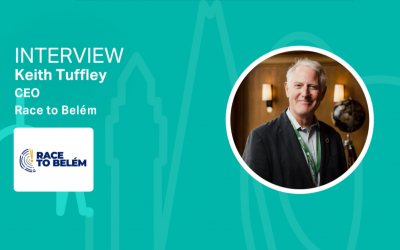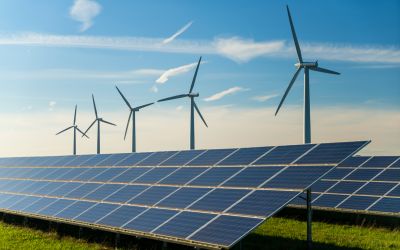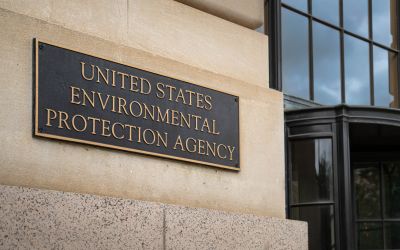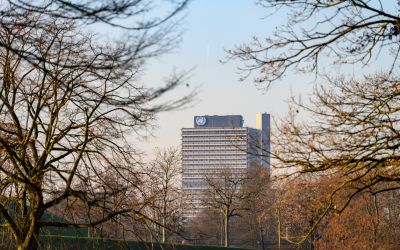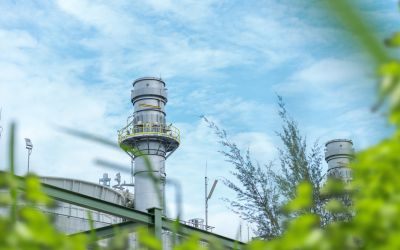World Climate Summit Report: Ted Turner urges COP16 delegates to make a deal
At the inaugural World Climate Summit (WCS) in Cancun, Mexico, entrepreneur Ted Turner had a message for delegates at the 16th Conference of Parties (COP16) who are meeting to discuss climate change.
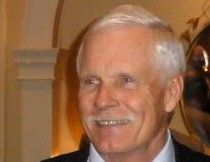
At the inaugural World Climate Summit (WCS) in Cancun, Mexico, entrepreneur Ted Turner had a message for delegates at the 16th Conference of Parties (COP16) who are meeting to discuss climate change.
"Let's do it now (reach a climate change agreement) before it's too late," he said, in response to being asked what he would say if he could address the COP16. Turner took part in a discussion at the Ritz-Carlton on Saturday, alongside Sir Richard Branson, to discuss the role of business in climate change. Sally Ranney, CEO of Stillwater Preservation, moderated the dialogue and put questions to both Turner and Branson in a 40-minute talk.
The two businessmen were in Cancun to discuss ways in which businesses could help mitigate climate change through partnerships. Ranney began by asking why, from a business perspective, there was currently no traction on a climate treaty.
"Humanity is not very good at dealing with long-term problems," Turner replied. He added that humans had no difficulty changing things in the short-term - when emergencies arose – citing the example of the trapped Chilean miners, but that social change had not kept up with technological developments.
In reply to the same question, Sir Richard Branson said: "I find (that) when I'm in America talking about climate change I choose not to talk about climate change now. I talk about the fact that we are running out of oil..."
He went on to say that in five or six years time demand for oil will exceed supply.
"I also talk about the opportunity for business from climate change," he added. Both men agreed that there were huge opportunities in the energy sector for entrepreneurs.
"There is money in the energy sector," said Branson before urging young people to start exploring the opportunities that were out there.
Turner agreed, calling renewable energy the business of the future and "where the greatest opportunities are." On the subject of opportunities, Turner spoke of his investment in Southern Company and how they provided solar power to 9,000 homes in New Mexico.
The panels took a year to build, and in a reference to the Chilean coal mining accident and the mining disaster in New Zealand, he said that no-one was killed during the installation of the panels because all the work took place above ground.
When talk progressed onto the topic of the effects of climate change on the environment, Turner stated it was up to us to save all species, not just mankind. "We have to save it all, or lose it all," he said, before admitting that he wasn't even sure the US media were covering the WCS, such was the apathy in some quarters.
When asked if the WCS would make a difference to climate change, Branson answered that it would because "we can't afford to wait for government to make decisions."
He admitted that help from governments in terms of taxation and policy would help, his advice to governments being not to tax clean fuels, but to instead tax dirty fuels.
"Governments should encourage clean fuels," he said, but admitted that once their use became more widespread, they should be taxed. With the Japanese government ready to refuse to extend the existing Kyoto Protocol, Ranney asked if business was really able to get the job done and take up the climate change agenda.
"Business has to," replied Branson, but he stressed that, with their actions, businesses have to bring governments along with them.
Turner was more forthright. 'If we're going to save the world, business has to step up now,' he said. He cited US retailer Walmart as an example of what can be done when a business puts their mind to tackling climate change.
As part of its environmental strategy Walmart promotes sustainable management of the world's forests, participates in the WWF Global Forest and Trade Network, as well as investing in Amazon conservation.
Turner has invested in an initiative called the global nuclear fuel bank, which the International Atomic Energy Agency announced on Friday would be given the green light. It is a reserve of low enriched uranium, which would prevent the disruption of uranium for civilian use if supplies dropped in the commercial market.
Sir Richard has started the Virgin Green Fund – a private fund investing in renewable energy worldwide – and has invested heavily in biofuels. During the WSC discussion Branson stated that biobutanol appeared to be the answer to fuelling his aeroplanes, pledging that within five years all Virgin planes would be running on biofuels.
Branson was also scheduled to speak individually at the WCS as part of the carbon war room, an initiative to harness the power of entrepreneurs to implement market-driven solutions to climate change.
The WCS runs from 4th-5th of December and is scheduled to run every year for the next 10 years, in parallel with the annual COP meetings.
Author: Leroy Robinson | Climate Action
Image: bsteve76 | Flickr

